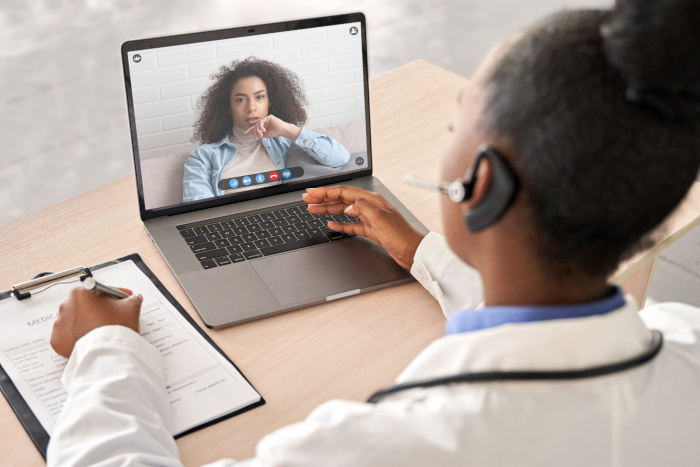Provider Feedback
 Responding providers reported feedback about their personal telehealth experiences, in which the majority suggested presenting patients the choice of telehealth visits or in-person visits.
Responding providers reported feedback about their personal telehealth experiences, in which the majority suggested presenting patients the choice of telehealth visits or in-person visits.
Of the responding providers, approximately 50% offered a few telehealth visits before the pandemic, and all suggested to provide telehealth visits following the pandemic. They overwhelmingly noted that video-based telehealth visits are more effective than phone-based visits, despite technology challenges.
Of all factors presented to continue telehealth visits, the most important enabling factors include maintaining reimbursement equivalent to in-person visits, interstate practice, and prescribing controlled substances.
 Responding providers reported feedback about their personal telehealth experiences, in which the majority suggested presenting patients the choice of telehealth visits or in-person visits.
Responding providers reported feedback about their personal telehealth experiences, in which the majority suggested presenting patients the choice of telehealth visits or in-person visits.
